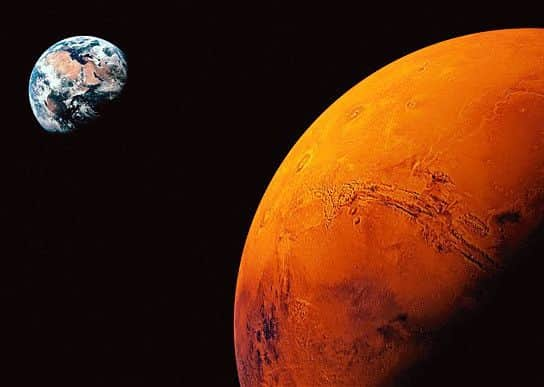Boy’s post is out of this world!


The query had Royal Mail staff scratching their heads.
The finest minds in space travel worked on the problem before coming back with an answer.
Advertisement
Hide AdAdvertisement
Hide Ad

And at £11,602.25, the cost of intersteller postage doesn’t come cheap.
Nasa chiefs took into account the weight of the card on the next mission to Mars, the distance and the cost of the fuel to arrive at the title.
“Wow! That’s a lot of money,” exclaimed Oliver, who lives with his mum and dad, Mike and Melanie Giddings and eight-year-old brother, William, in Ansdell.
Mum Melanie said: “Oliver has always been an inquisitive little boy and is very keen on anything to do with space, stars and planets.
Advertisement
Hide AdAdvertisement
Hide Ad

“He was so excited to get such a great letter back from Royal Mail.”
The response from Royal Mail, following advice from the NASA Mars Outreach Team in the United States of America, began with the distance from Mars to Earth, some 567 million kilometres away.
Royal Mail senior customer advisor, Andrew Smout, said: “NASA also told me that their last visit to Mars, carrying the Curiosity rover, cost about $700m.
“The spaceship itself is very small, so storage is at a premium.
Advertisement
Hide AdAdvertisement
Hide Ad“Based on how much the spaceship weighed, compared to how much it costs to get to Mars; they said that something weighing up to 100 grams would cost them approximately $18,000 to fly to Mars.
Andrew then spoke to Royal Mail’s international team.
“They make sure we can get letters and parcels from the United Kingdom to other parts of our world.
“They said that an average letter weighing between 21 grams and 100 grams costs £2.25 to send to any of the current NASA launch sites in the USA, Republic of the Marshall Islands and Alaska.”
They also considered the cost of rocket fuel.
Mr Smout said: “Fuel is very expensive and affects the cost of sending letters around our planet.
Advertisement
Hide AdAdvertisement
Hide Ad“At the moment, the cost of sending a letter to the USA by a jumbo jet is more than sending it to France, because it’s much further away.
“The team reached a conclusion about the price, based on the information NASA provided and Royal Mail’s current pricing.
“We decided that, if you wanted to send a normal letter to someone living on Mars, it would cost about £11,602 and 25 pence. That’s 18,416 First Class stamps or 21,486 Second Class stamps!
Oliver wrote back thanking the Royal Mail team for their detailed answer.
Advertisement
Hide AdAdvertisement
Hide Ad“Thank you for working out the answer, I enjoyed reading it. It’s very expensive to send a letter to Mars. You would need so many stamps!” said Oliver.
Mr Smout said: “We always like to answer every query we get from our customers.
“This one took a bit longer but we enjoyed the journey to find out!”
Mars factfile
• Mars is nicknamed the red planet because it is covered with rust-like dust. Even the atmosphere is a pinkish red, colored by tiny particles of dust thrown up from the surface.
Advertisement
Hide AdAdvertisement
Hide Ad• Mars experiences violent dust storms which continually change its surface.
• Mars has many massive volcanoes and is home to Olympus Mons, the largest volcano in our solar system, it stands 21km high and is 600km across the base. Mars has a very thin atmosphere made mostly of carbon dioxide. It is not thick enough to trap the sun’s heat like Venus, so the planet is very cold.
• Temperatures range from -120 Degrees Celsius on winter nights to 25 Degrees Celsius in the summer. Mars has many channels, plains and canyons on the surface which could have been caused by water erosion in the past.